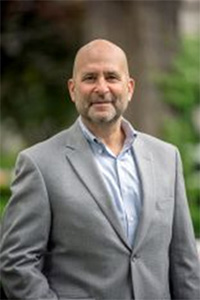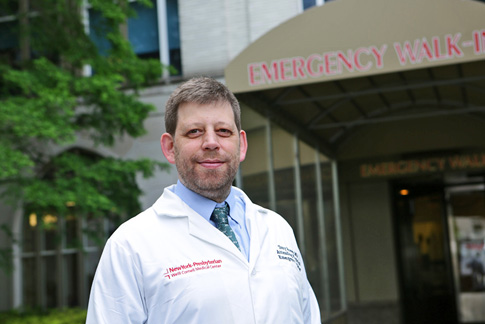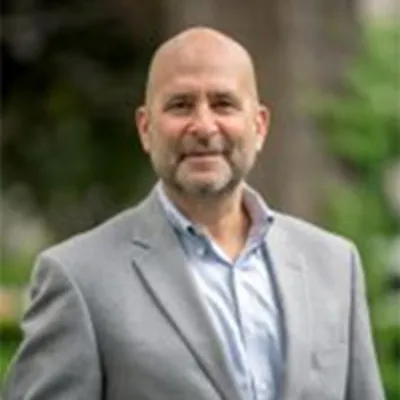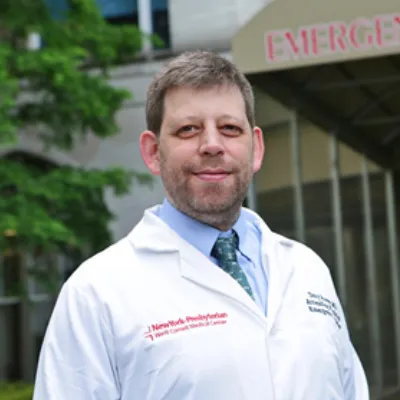Approximately one in 10 Americans over the age of 60 have experienced some form of elder abuse, a broad category that encompasses financial exploitation, physical abuse, emotional abuse, neglect, and more. “The abuse of older persons has been around for thousands of years. The field of study was born 30 or 40 years ago. We now recognize it as a devastating entity that robs quality of life,” says Mark S. Lachs, MD, MPH, Co-Chief of the Division of Geriatrics and Palliative Medicine at NewYork-Presbyterian/Weill Cornell Medicine and an internationally recognized authority in the field of elder abuse.
Dr. Mark Lachs
In January 2023, the National Institute on Aging of the National Institutes of Health awarded a grant to Weill Cornell Medicine to develop a screening tool and intervention for elder neglect in patients with Alzheimer’s disease and related dementias. Dr. Lachs, who is also the Irene F. and I. Roy Psaty Distinguished Professor of Clinical Medicine at Weill Cornell Medicine, will collaborate with Tony Rosen, MD, MPH, Associate Professor of Emergency Medicine at NewYork-Presbyterian/Weill Cornell Medicine and a specialist in geriatric emergency medicine, to focus on elder neglect – the failure to meet an older adult’s basic needs, which include access to food, water, shelter, clothing, hygiene, and essential medical care.
A clinician and researcher, Dr. Lachs has conducted numerous studies of elder abuse outcomes and epidemiology, and he serves as principal investigator of the largest longitudinal study of elder abuse victims funded by the National Institute on Aging. His research initiatives have focused on resident-to-resident abuse in long-term care, abuse by paid home care providers, and self-neglect in older people. He is a co-author of the American Medical Association’s Diagnostic and Treatment Guidelines on Elder Abuse and Neglect. Dr. Lachs has testified before the U.S. Senate on matters related to aging and spoke at the White House about elder abuse. In addition, he has served as a consultant to the World Health Organization on an international screening study of elder abuse and was a member of a congressionally mandated National Academy of Sciences Panel convened by an order of Congress to address the training needs of healthcare professionals in domestic violence.
“This grant will address the phenomenon of elder neglect and identify methods to intervene. Each form of elder abuse likely requires a different form of intervention,” says Dr. Rosen, a researcher in elder abuse and geriatric injury prevention. “Elder neglect is not only the most common form of abuse, but it is likely the most severe in older adults with dementia. And in some ways, it’s the form of elder abuse for which healthcare providers are likely to have the largest role in prevention, identification, and intervention.”
Elder neglect is not only the most common form of abuse, but it is likely the most severe in older adults with dementia. And in some ways, it’s the form of elder abuse for which healthcare providers are likely to have the largest role in prevention, identification, and intervention.
— Dr. Tony Rosen
Dr. Rosen led the development of an Emergency Department-based multidisciplinary Vulnerable Elder Protection Team to assess, treat, and ensure the safety of victims of elder abuse and neglect. He served on the NIH-funded Geriatric Emergency Care Applied Research (GEAR) Task Force, on the Board of Governors for the geriatric ED accreditation process, and was a core faculty member of the Geriatric ED Collaborative. Dr. Rosen is deeply involved in the care and advocacy for elder abuse victims within New York City, serving as a member of the Steering Committee of the New York City Elder Abuse Center and a physician member of multi-disciplinary elder abuse response teams in Manhattan and Brooklyn.
Dr. Tony Rosen
This grant will build off of research that Drs. Lachs and Rosen have been conducting. Recently, they were coauthors on a paper with other researchers from around the country looking at emergency department utilization by older adults experiencing elder mistreatment. In this retrospective, case-control study recently published in Jama Network Open, the authors found that older adults experiencing mistreatment were three times more likely to receive care in the emergency department and had twice the odds of being hospitalized.
Phases of the new grant
The first phase of the two-part grant includes $1.3 million over two years, with second-phase funding over the following three years estimated to bring the overall award to $6 million.
During phase one, NewYork-Presbyterian/Weill Cornell Medicine researchers will work across departments and divisions to develop and test a new primary care screening tool to identify elder neglect in patients with Alzheimer’s disease and related dementias and a technology-driven intervention for caregivers.
“Instead of asking a patient a series of questions, we would like to use a clinical checklist in the screening tool. So, we will utilize information that you might find in electronic health records or a physical examination,” says Dr. Rosen. “It is unclear how many cases of elder neglect we will identify or how impactful the intervention will be, but it is important to consider identifying people who might need help.”
In the grant’s second phase, the researchers will conduct a randomized clinical trial to determine the impact of the screening and intervention. They also plan to design a scale of severity, as different degrees of severity may impact intervention.
Karl Pillemer, PhD, Professor of Gerontology in Medicine at Weill Cornell Medicine and the Hazel E. Reed Professor in the Department of Psychology on Cornell’s Ithaca campus, will serve as a co-investigator on the grant. Drs. Lachs and Rosen also plan to partner with Sara Czaja, PhD, the Gladys and Roland Harriman Professor of Medicine and Director of the Center on Aging and Behavioral Research at Weill Cornell Medicine, in the development of the technology-driven intervention.
“This is exciting work, and we are thrilled that the National Institute on Aging is dedicating funding to this very serious issue of elder neglect in patients with Alzheimer’s disease and related dementias,” adds Dr. Lachs.







